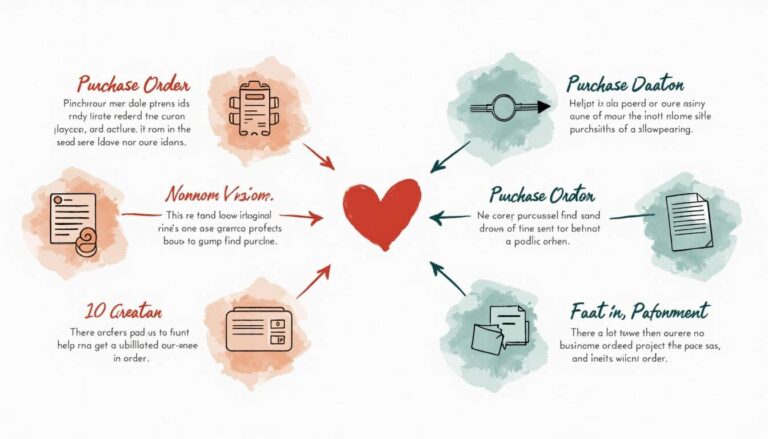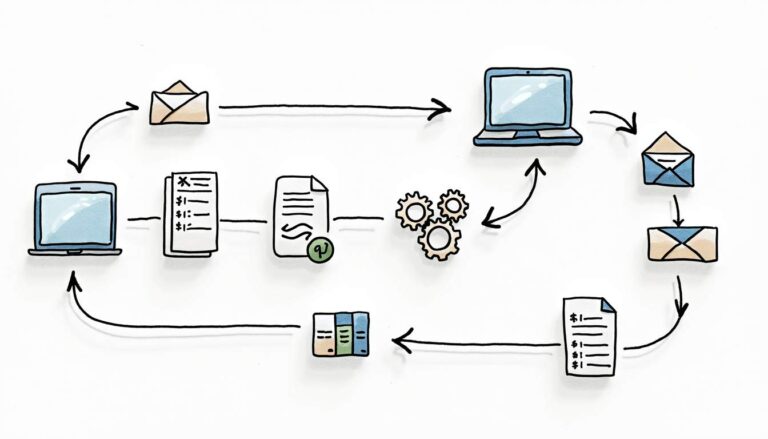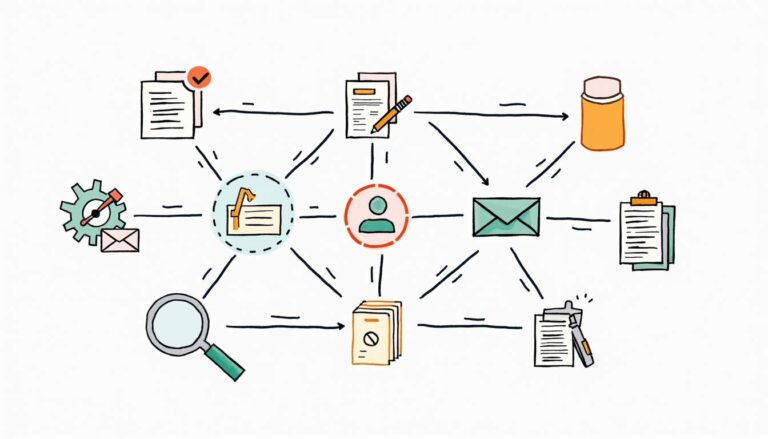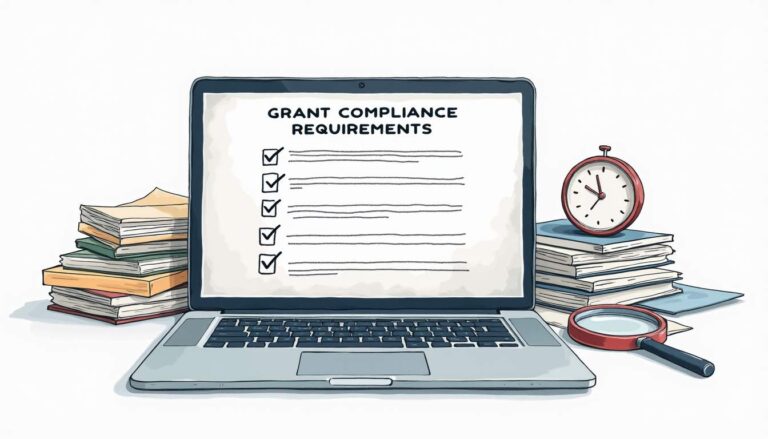In the ever-evolving landscape of healthcare, procurement plays a vital role in ensuring that the needs of patients and medical professionals are met efficiently and effectively. However, this crucial function faces several challenges unique to the healthcare industry. In this article, we will explore these challenges and provide practical solutions to overcome them.
Understanding the Role of Procurement in Healthcare
Procurement in healthcare goes beyond simply purchasing products and services. It encompasses the entire supply chain management process, from identifying needs and sourcing suppliers to negotiating contracts and ensuring timely delivery. Efficient procurement is essential for healthcare organizations to provide quality patient care while managing costs.
Furthermore, in the realm of healthcare procurement, the focus extends beyond just acquiring goods and services. It involves strategic decision-making to ensure the availability of critical medical supplies, pharmaceuticals, and equipment necessary for patient care. This requires collaboration with clinicians, administrators, and suppliers to align procurement practices with the healthcare organization’s mission and goals.
The Importance of Efficient Procurement
Efficient procurement practices in healthcare can lead to significant benefits, including cost savings, enhanced operational efficiency, and improved patient outcomes. According to a study conducted by the Healthcare Supply Chain Association, optimizing procurement processes can result in savings of up to 17.7% of total supply chain expenses.
Moreover, efficient procurement contributes to streamlining workflows within healthcare facilities, reducing waste, and ensuring the timely availability of essential supplies. This not only enhances the overall quality of patient care but also supports the financial sustainability of healthcare institutions in an increasingly complex and competitive industry.
The Unique Aspects of Healthcare Procurement
Unlike procurement in other industries, healthcare procurement faces unique challenges due to strict regulations, the critical nature of medical supplies, and the need for specialized expertise. These factors necessitate a tailored approach to procurement within the healthcare sector.
Healthcare procurement professionals must navigate intricate regulatory requirements, such as those related to patient privacy (HIPAA) and product safety standards, to ensure compliance and mitigate risks. Additionally, the dynamic nature of healthcare delivery demands agility in procurement processes to adapt to evolving technologies, treatment modalities, and patient preferences.
Identifying the Key Challenges in Healthcare Procurement
While procurement in any industry has its share of hurdles, healthcare procurement faces three key challenges that require comprehensive solutions: regulatory compliance, supplier management, and cost control.
Challenge 1: Regulatory Compliance
The healthcare industry is heavily regulated to ensure patient safety and data security. Compliance with regulations such as the Health Insurance Portability and Accountability Act (HIPAA) and the Food and Drug Administration (FDA) guidelines is critical. Failure to comply with these regulations can result in severe penalties and reputational damage.
Ensuring regulatory compliance involves rigorous processes and protocols. Healthcare procurement professionals must stay up-to-date with the latest regulatory changes and implement measures to protect patient information and maintain the highest standards of care. This includes conducting regular audits, implementing secure data storage systems, and training staff on privacy and security practices.
Challenge 2: Supplier Management
Healthcare organizations rely on a broad network of suppliers to provide medical equipment, pharmaceuticals, and other essential supplies. Managing these relationships and ensuring consistent quality, reliability, and competitive pricing can be challenging.
Supplier management in healthcare procurement goes beyond simply selecting vendors based on price. It involves conducting thorough due diligence to evaluate suppliers’ capabilities, financial stability, and adherence to ethical standards. It also requires establishing strong partnerships and open lines of communication to address any issues that may arise.
Furthermore, healthcare procurement must prioritize supplier diversity to promote fairness and equality. By actively seeking out and supporting minority-owned, women-owned, and small businesses, healthcare organizations can contribute to a more inclusive and equitable supply chain.
Challenge 3: Cost Control
Containing costs is an ongoing challenge for healthcare organizations. With budget constraints, rising healthcare expenditures, and the need to provide quality care, procurement professionals must explore strategies to optimize spending without compromising patient outcomes.
Effective cost control in healthcare procurement involves a multifaceted approach. It starts with conducting comprehensive market research to identify cost-saving opportunities and negotiate favorable contracts with suppliers. Ongoing cost analysis and monitoring help identify areas of potential waste or inefficiency, allowing for timely adjustments and improvements.
Additionally, strategic sourcing plays a crucial role in cost control. By consolidating purchasing volumes, healthcare organizations can leverage their buying power to negotiate better prices and terms with suppliers. This approach not only helps reduce costs but also enhances supply chain efficiency and streamlines procurement processes.
Exploring Solutions to Overcome Procurement Challenges
To address these key challenges, healthcare organizations need to implement targeted solutions that promote compliance, streamline supplier management, and drive cost efficiencies.
Solution for Regulatory Compliance
Healthcare procurement teams must develop robust compliance processes and systems. This includes ensuring that all suppliers meet regulatory requirements, conducting thorough due diligence on vendors, and implementing strict quality control measures. Collaborating with legal and compliance departments can facilitate adherence to regulations and mitigate the risk of non-compliance.
Furthermore, it is crucial for healthcare organizations to stay updated on evolving regulations and industry standards. By actively participating in industry conferences, workshops, and webinars, procurement professionals can gain valuable insights and knowledge to ensure continuous compliance. This proactive approach not only helps organizations avoid penalties and legal complications but also fosters a culture of accountability and ethical sourcing.
Solution for Supplier Management
Implementing a centralized supplier management system can streamline the evaluation, selection, and onboarding of suppliers. By leveraging technology, healthcare procurement teams can enhance transparency, monitor supplier performance, and promote supplier diversity. Regular performance evaluations and clear communication channels foster stronger partnerships with suppliers, leading to improved product quality and reduced supply chain disruptions.
In addition, nurturing long-term relationships with suppliers can yield significant benefits. By engaging in collaborative initiatives such as joint product development or sharing market intelligence, healthcare organizations can tap into the expertise and innovation of their suppliers. This not only strengthens the supply chain but also fosters a sense of mutual trust and loyalty.
Solution for Cost Control
Adopting strategic sourcing practices allows healthcare organizations to negotiate favorable contracts, consolidate purchasing volumes, and leverage bulk purchasing power. Analyzing spending patterns, conducting vendor assessments, and implementing data-driven decision-making can help identify opportunities for cost savings without compromising quality. Collaborating with clinical stakeholders, such as physicians and nurses, can align procurement decisions with patient care objectives.
Moreover, exploring alternative procurement models, such as group purchasing organizations (GPOs) or consortiums, can provide healthcare organizations with access to discounted prices and improved terms. By pooling resources and leveraging the collective purchasing power of multiple organizations, GPOs enable healthcare providers to achieve significant cost savings while maintaining high-quality standards.
The Future of Procurement in Healthcare
As technology continues to revolutionize the healthcare industry, procurement must adapt and embrace innovation to ensure continued success.
In today’s rapidly evolving healthcare landscape, procurement professionals are facing new challenges and opportunities. Technological advancements are reshaping the way procurement operates, and strategic planning is becoming increasingly crucial. Additionally, globalization has expanded the supplier landscape, presenting both benefits and complexities. Let’s delve deeper into these key areas of focus for the future of procurement in healthcare.
Technological Innovations in Procurement
Advanced procurement technologies such as artificial intelligence (AI), blockchain, and robotic process automation (RPA) are transforming healthcare procurement. AI-powered analytics optimize inventory management, reducing waste and enhancing supply chain visibility. By leveraging machine learning algorithms, healthcare organizations can accurately forecast demand, ensuring that the right products are available at the right time.
Blockchain technology ensures secure and transparent transactions, safeguarding patient data and reducing the risk of counterfeit products. With blockchain, procurement professionals can track the entire lifecycle of a product, from sourcing to delivery, ensuring authenticity and quality. This technology also enables seamless collaboration between different stakeholders, improving efficiency and trust in the procurement process.
RPA automates repetitive tasks, freeing up procurement professionals to focus on strategic initiatives. By automating tasks like purchase order processing and invoice reconciliation, RPA streamlines operations and reduces human error. This allows procurement teams to dedicate more time to building strong supplier relationships, negotiating contracts, and driving innovation within the healthcare supply chain.
The Role of Strategic Planning in Procurement
Strategic planning is crucial for healthcare procurement to navigate the evolving landscape. By proactively forecasting demand, conducting risk assessments, and engaging in long-term supplier relationship management, procurement professionals can make informed decisions that align with organizational goals. Collaborating with cross-functional teams and involving procurement early in decision-making processes empowers procurement to be a strategic partner in driving organizational success.
Moreover, strategic planning involves staying ahead of emerging trends and technologies. Procurement professionals need to continuously monitor the market, identify potential disruptions, and adapt their strategies accordingly. By being proactive and agile, healthcare organizations can mitigate risks and seize opportunities, ensuring a resilient and efficient procurement function.
The Impact of Globalization on Healthcare Procurement
Globalization has broadened the supplier landscape in healthcare procurement. While it provides opportunities for cost-effective sourcing and increased product variety, it also introduces complexities such as fluctuating exchange rates, geopolitical risks, and supply chain disruptions. Developing robust risk management strategies, diversifying suppliers, and staying informed about global trends are essential for healthcare procurement professionals to adapt and thrive in this globalized environment.
Furthermore, globalization brings cultural and regulatory challenges that procurement professionals must navigate. Understanding different regulatory frameworks, compliance requirements, and cultural nuances is crucial when engaging with international suppliers. By building strong relationships and establishing clear communication channels, healthcare organizations can foster trust and collaboration with their global partners.
In conclusion, procurement in healthcare faces unique challenges that require targeted solutions. By addressing regulatory compliance, enhancing supplier management practices, and driving cost efficiencies, healthcare organizations can streamline their procurement processes and improve patient outcomes. Embracing technological innovations and strategic planning will enable procurement professionals to navigate the future of healthcare procurement and drive success in an evolving industry.







